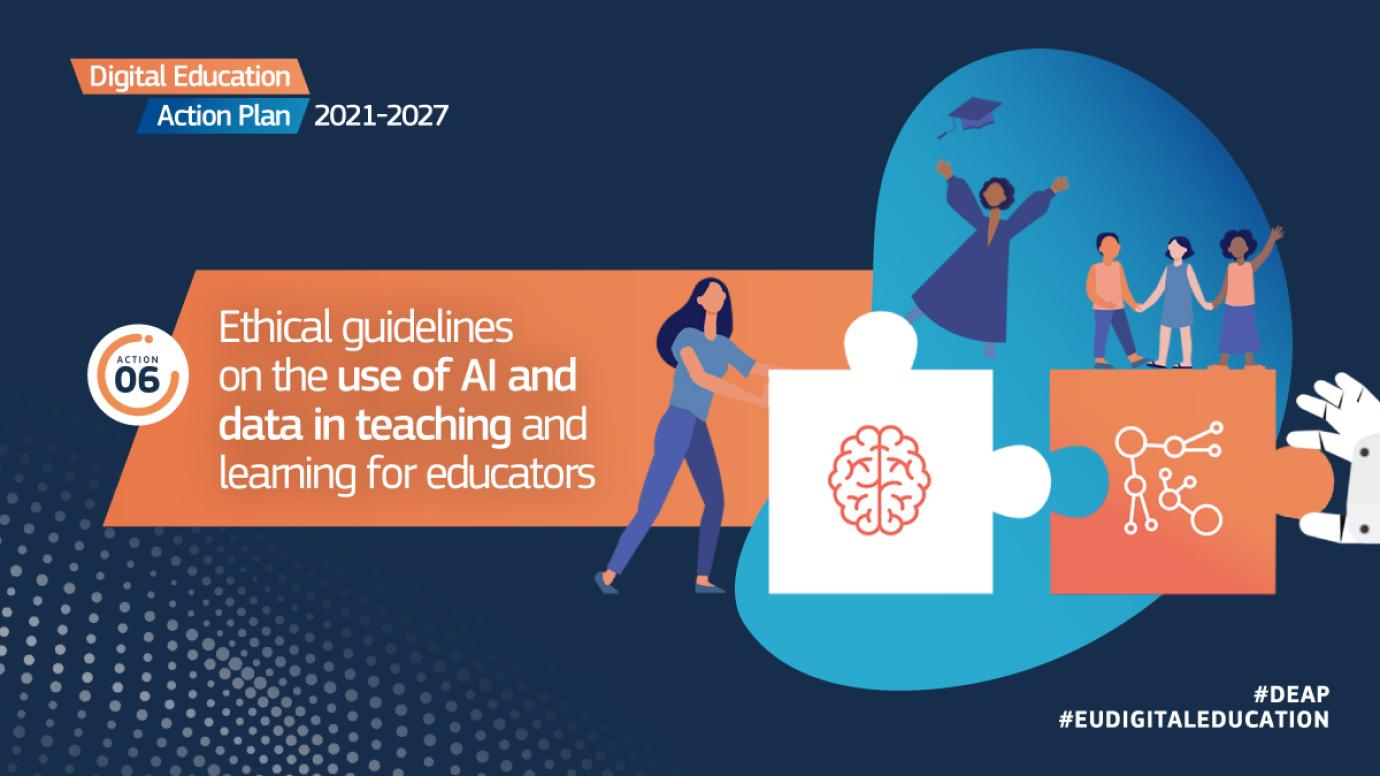Ethical guidelines for educators on using artificial intelligence
As artificial intelligence (AI) continues to evolve and our data is put to new uses, it’s important to understand the impacts. AI in education is no longer a futuristic idea, but a growing reality. Using AI to help teach foreign languages is just one example.
AI has great potential to improve education, but we need more in-depth analysis of the implications, including any ethical issues that might arise.
What are the goals?
The European Commission wants to raise awareness of AI and data use in education and flag up the possible risks, including ethical ones. It aims to provide some guidance to properly use AI in education.
What is the Commission doing?
In 2022 we published guidelines on the ethical use of AI and data in teaching and learning. These were developed by a group of education and AI experts based on feedback from a consultation that we carried out.
The guidelines offer practical support and guidance, mostly for primary and secondary teachers with little or no experience in using AI.
The guidelines aim to:
- explain how AI can be used in schools
- help teachers and students to use AI in their teaching and learning
- discuss the ethical considerations that underpin the guidelines
- support the development of systems and administrative processes
The guidelines also contain a series of questions on the ethical and practical considerations of using AI and data-based resources and give advice on how to adapt them to different educational purposes.
How will the guidelines help in your teaching practice?
Watch the promotional video
What other practical benefits will there be?
- greater awareness of the ethical use of AI and data in teaching and learning
- greater use of AI in education and training
Funding
This action is funded by the EU’s Erasmus+ and Horizon Europe programmes.



